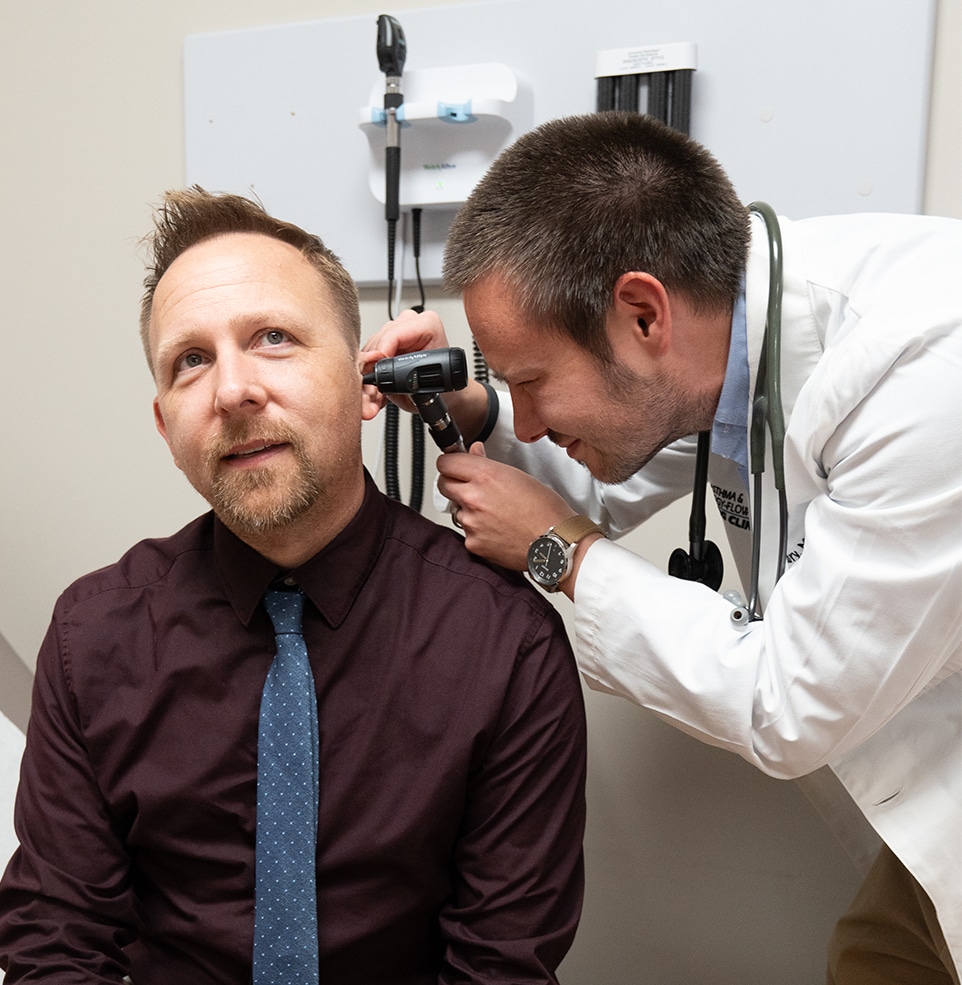For some people, allergies may only appear during certain seasons. Others may experience symptoms year-round due to indoor triggers like dust mites or pet dander.
In rare cases, allergies can trigger anaphylaxis, a severe and potentially life-threatening reaction. Symptoms of anaphylaxis may include difficulty breathing, swelling of the lips or throat, rapid heartbeat, dizziness or a sudden drop in blood pressure. Anyone experiencing these signs should seek emergency medical care immediately.
Allergy Testing
Diagnosing allergies begins with a thorough evaluation of your medical history and symptoms. Your allergy specialist will ask about the timing and severity of reactions, family history and possible environmental or dietary triggers.
Testing may include:
- Skin prick tests: Small amounts of common allergens are applied to the skin to see if a reaction occurs.
- Blood tests: Specific antibodies that indicate sensitivity to certain allergens are measured.
- Elimination or challenge testing: Symptoms are identified by gradually removing or introducing suspected triggers.
Accurate diagnosis is essential for creating a personalized treatment plan that effectively manages symptoms and reduces the risk of severe reactions.
Allergy Treatment
Allergies can be managed effectively with the right approach. Treatment often begins with identifying specific triggers through testing and observation. Common strategies include:
- Avoidance: Reducing exposure to allergens such as pollen, dust or pet dander whenever possible
- Medications: Using antihistamines, nasal sprays or eye drops to relieve symptoms
- Immunotherapy: Receiving allergy shots or sublingual drops that gradually retrain the immune system to reduce its overreaction
- Personalized care plans: Working with an allergy specialist to develop a treatment plan tailored to your needs and lifestyle
With proper treatment, many patients experience significant relief, improved quality of life and a reduced risk of severe reactions. Early evaluation and management are key to staying healthy and comfortable throughout the year.



